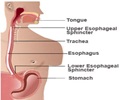A drug used to treat colorectal cancer also can reverse a rare stomach disorder and should be considered first-line therapy for the disease, researchers at Vanderbilt University Medical
Researchers at Vanderbilt University Medical Center have reported that a drug used to treat colorectal cancer also can reverse a rare stomach disorder and should be considered first-line therapy for the disease.
Ménétrier's disease causes thickening of the stomach lining, severe abdominal pain, nausea and vomiting, as well as anemia and swelling in the feet and ankles due to protein loss. Patients are at increased risk for gastric cancer. Previously, the only effective treatment was gastrectomy – surgical removal of the stomach.The targeted cancer drug cetuximab, brand name Erbitux, relieved symptoms of severe Ménétrier's disease in seven patients who completed a one-month course of treatment. Four of them showed near-complete remission, the Vanderbilt researchers report in the Nov. 25 issue of the journal Science Translational Medicine.
"We have identified the first effective medical therapy for this disorder," said Robert Coffey, M.D., Ingram Professor of Cancer Research and the paper's senior author. Erbitux is a monoclonal antibody that blocks the binding of transforming growth factor-alpha, or TGF-alpha, a signaling protein, to the epidermal growth factor (EGF) receptor. Patients with Ménétrier's disease have abnormally high levels of TGF-alpha.
In studies dating back 20 years, Coffey and his colleagues found that TGF-alpha causes proliferation of the stomach lining and stimulates mucous production while suppressing acid secretion. Transgenic mice that over-express TGF-alpha in the stomach exhibit all of the hallmarks of Ménétrier's disease.
The current study involved nine patients who were considering gastrectomy. Two patients dropped out of the study, but the rest experienced significant relief of symptoms within hours or days after beginning treatment. All seven continued taking the drug after the monthlong study ended.
Of the four patients who experienced near-complete remission of the disease, one of them, and the other three patients in the study, later underwent gastrectomy. Two patients are no longer taking the drug, and one of them has a normal stomach and remains symptom-free two years later, Coffey said.
Advertisement
Source-Eurekalert
TAN










